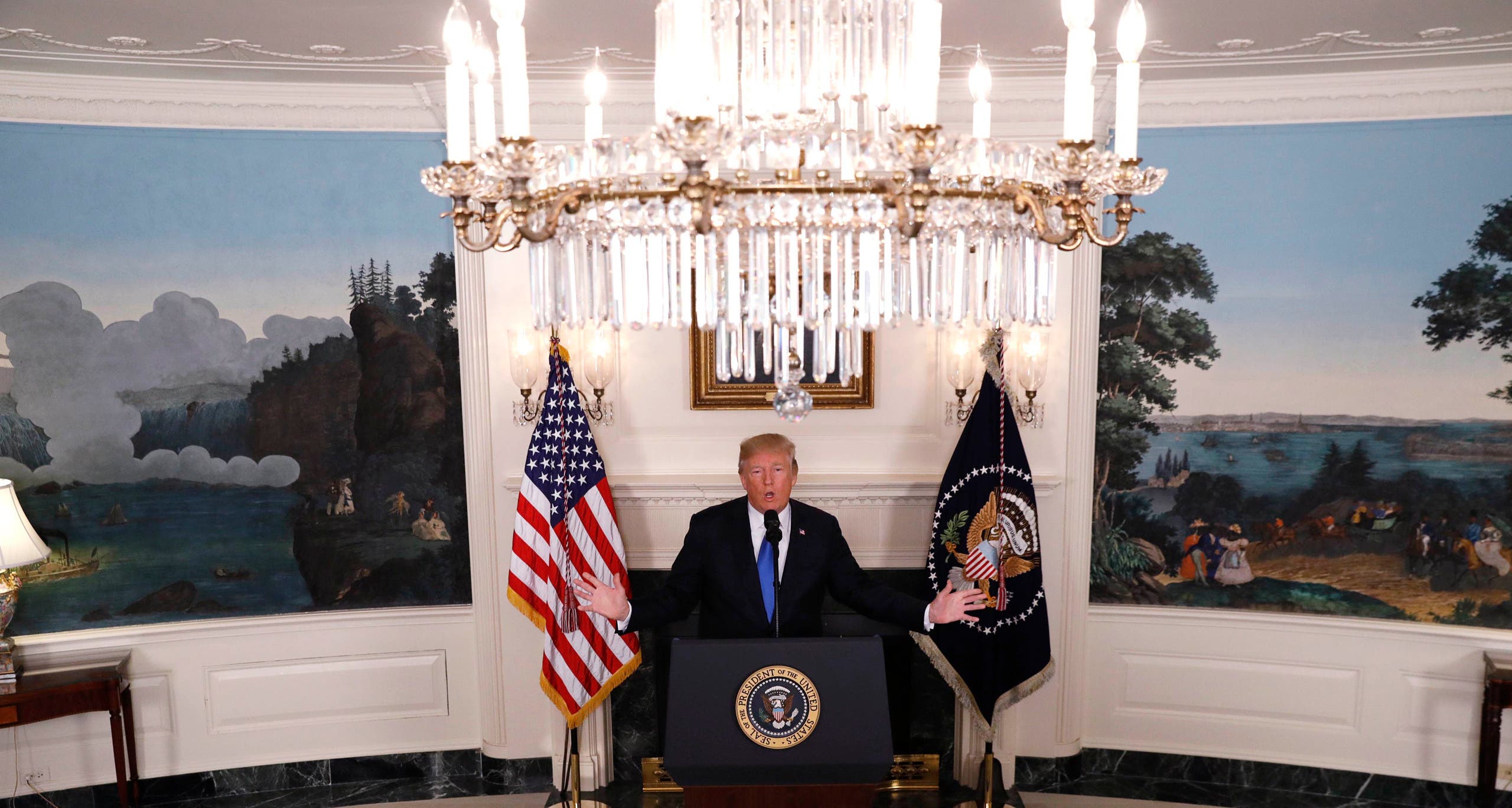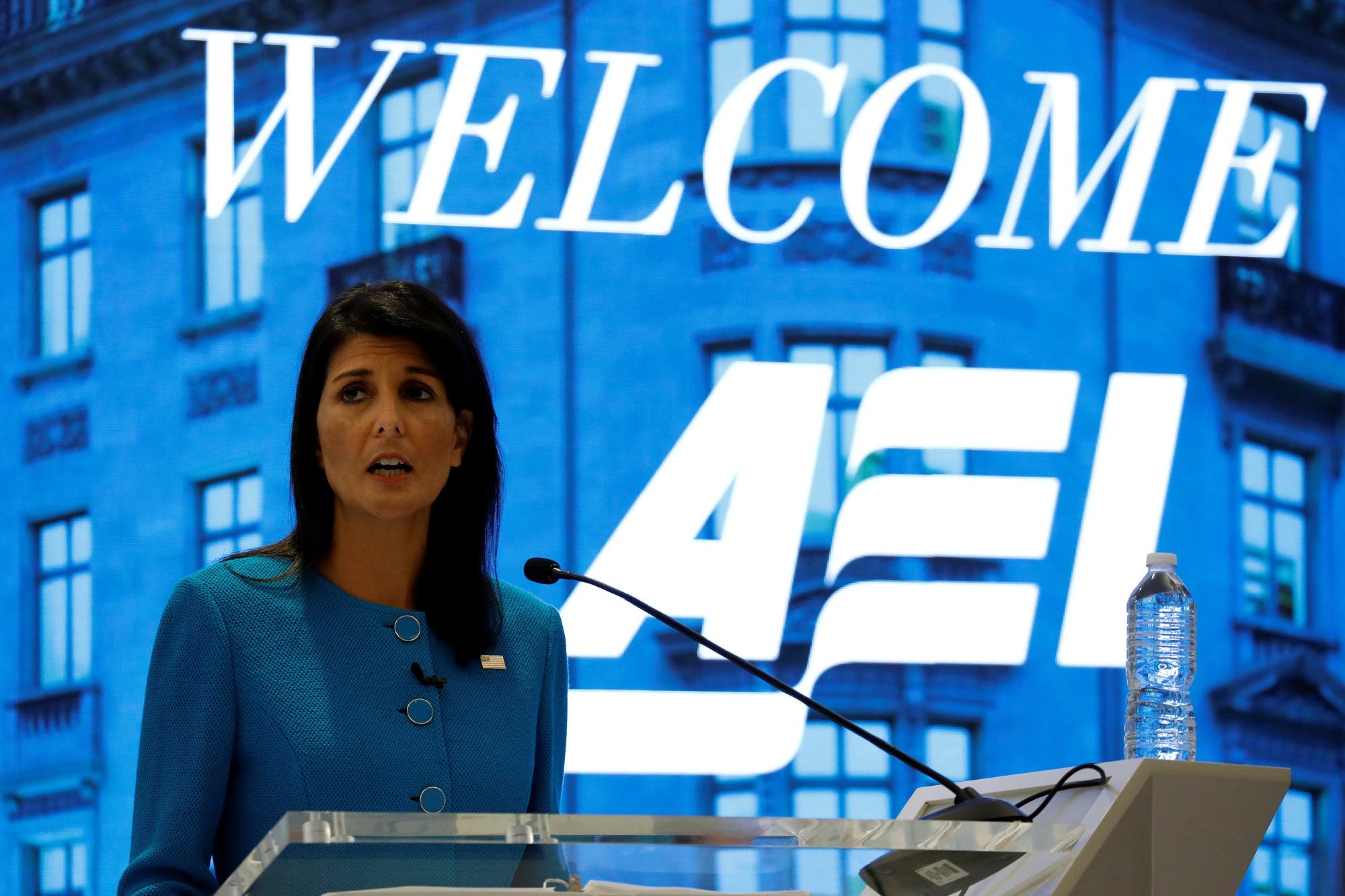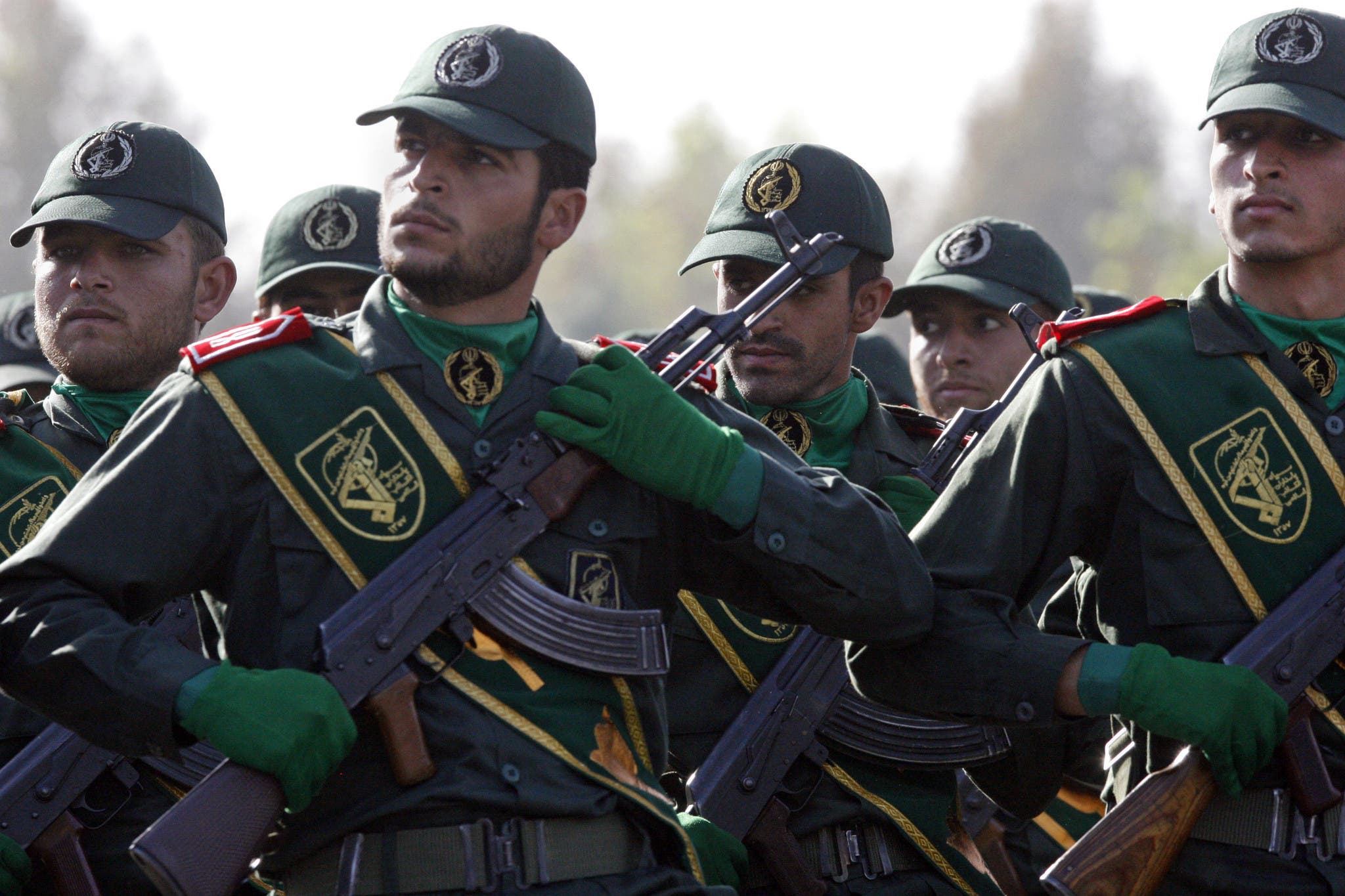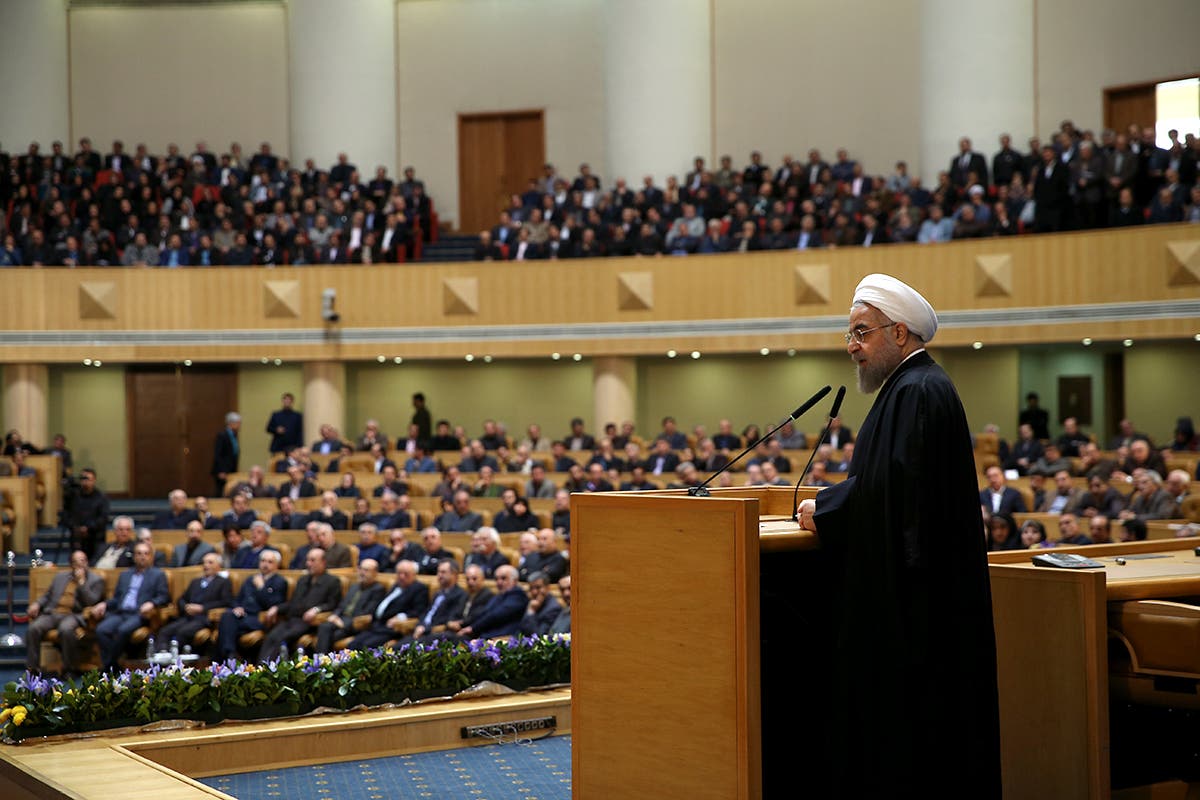US President Donald Trump decertified the Iran nuclear deal on Friday and referred the case to Congress. It remains to be seen what measures await Tehran, especially considering the highly intensive quarrel that brought us where we are today.
What is certain, however, is that this marks a major US policy shift vis-à-vis Iran, having impact across the flashpoint Middle East.
Ever since the presidency of Dwight D. Eisenhower back in the 1950s and since the CIA-backed the 1953 coup d’état against the democratically-elected government of Prime Minister Dr. Mohammad Mosaddegh, Washington’s policies have either directly or indirectly supported the ruling regimes in Iran and against the Iranian people’s better interests.
Trump, however, has for the second time in less than a month stated his solidarity with the Iranian people. Iran has violated the very spirit of the agreement, formally known as the Joint Comprehensive Plan of Action (JCPOA), and the entire accord is against US national security interests, according to Trump.
The Arab world reacted positively, with Saudi Arabia, Egypt, the UAE and Bahrain promptly supporting the US landmark decision.
This is in line with April’s Riyadh conference where Trump called on the Islamic world to recognize the threat of Iran’s meddling in their countries and take the necessary action. Considering the importance of the Middle East for Iran, rest assured Tehran is receiving these messages loud and clear.

Opposition voice
The Iranian opposition, National Council of Resistance of Iran (NCRI), known for its credibility after blowing the whistle on Tehran’s nuclear ambitions back in 2002, also welcomed Trump’s strategic policy shift.
The new US policy condemning flagrant human rights violations in Iran and “to deny the Iranian regime and especially the Islamic Revolutionary Guard Corps (IRGC) funding for its malign activities,” and opposing “IRGC activities that extort the wealth of the Iranian people,” are very necessary, according to NCRI President Maryam Rajavi.
Trump’s acknowledgment that under Iranian Supreme Leader Ali Khamenei the regime “oppresses its people, abuses their rights” and “exports violence, destabilizes its neighbors, and sponsors terrorism abroad,” is a recognition of the Iranian regime’s illegitimacy, she added.
The Trump administration has executed a widespread strategic alteration, ending years of appeasement and rapprochement that provided Tehran with unjustified concessions. This includes the 1997 designation of the Iranian opposition People’s Mojahedin Organization of Iran (PMOI/MEK) at the Iranian regime’s behest. Following a 15-year legal battle the PMOI successfully obtained a US federal court ruling ordering the Obama administration to end its unjust terrorist designation.

Undiplomatic, to say the least
Iran’s lobbies and appeasement advocates have gone the limits to restrain the Trump administration from adopting fierce measures against Tehran.
Iranian President Hassan Rouhani’s words depicted the devastating blow felt by the regime in its entirety, resorting to completely unorthodox and undiplomatic remarks for a president.
“Trump’s speech consisted of nothing but vulgar language, allegations and bogus remarks,” Rouhani saidin an unorthodox reply. “Trump apparently doesn’t know the JCPOA is not a bilateral document to act however he wishes,” he added. “…the IRGC is not just a military unit, but the Guards are in the hearts of [the Iranian] people,” he also said in a speech at a government cabinet meeting, ending any notion of being a so-call

Technical Input
Trump ordered the Treasury Department to “fully sanction” the IRGC for its support of terrorism. There can be a debate about the exact meaning of this measure. Does this place the IRGC under sanctions? Is this entity now considered a terrorist organization? What is the meaning of “designating” an entity as a terrorist body?
In the United States there is a law and an executive order covering terrorism. All organizations designated as terrorist organizations are blacklisted as such based on this law and/or executive order.
The legislation was adopted by Congress back in 1996, based on which the State Department, in coordination with the Treasury Department, were provided the authority to designate foreign organizations as terrorist entities, also known as Foreign Terrorist Organizations (FTO).
In 2001 following the 9/11 attacks, former US president George Bush issued Executive Order 13224, providing the State and Treasury departments the necessary authority to accelerate the process of designating, sanctioning and restricting such bodies as “foreign terrorist organization” or a “global terrorist.” The authority provided in a presidential executive order is equal to that of a congressional legislature.
On Friday, Trump ordered the Treasury Department to designate and fully sanction Iran’s IRGC in its entirety based on Executive Order 13224. Generally, these blacklists impose financial restrictions on the designated individuals or entities.
There are slight differences the two State and Treasury blacklists, as the main aspects are very similar, including confiscating all assets of the designated individual or organization, and placing them under the authority of the US judiciary. The State Department’s FTO list also imposes immigration restrictions.

The path forward
The “Corker-Cardin” bill overseeing the JCPOA for Washington provides Congress 60 days to decide the next step following Trump’s announcement on Friday, indicating the Iran nuclear deal is against U.S. national security interests. Trump has called on Congress to intensify this legislation to include certain additional restrictions.
Trump in fact emphasized if existing loopholes in the accord are not resolved, as president he enjoys the authority to single handedly revoke the agreement in its entirety.
This development goes far beyond designating the IRGC and has a more drastic impact than merely decertifying the JCPOA. The Trump administration has announced a completely new policy.
A White House fact sheet released prior to Trump’s speech specifically explains how a certain US policy pursued for 15 years vis-à-vis Iran and the Middle East was wrong, and how this administration has decided to no longer repeat those mistakes.
The Iran engagement policy was very effective and acted as a significant pillar in safeguarding and maintaining the Iranian regime in power. That is exactly why from the very day Tehran has sensed a major Washington policy change, all of Iran’s lobbies and advocates are going to the limits to prevent this now realized transition.
Iran had resorted to a variety of threats, even to take military action against US forces in the region, in the case of the IRGC being designated as a terrorist organization.
Now that the entire IRGC is designated as a terrorist organization, we are seeing voices against this development, and Iranian lobbyists attempting to downgrade this turn of events, claiming it is merely sanctions and far different from a terrorist designation.
The truth is that a policy that provided crucial support for Tehran through these years is witnessing major changes. This is rendering enormous concerns in Tehran. What needs comprehending is the scope of Trump’s major policy transition.
As he emphasized, “In this effort we stand in total solidarity with the Iranian regime’s longest suffering victims: Its own people.”
Leave a Reply